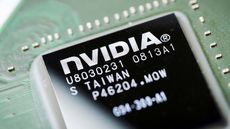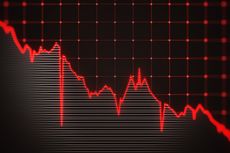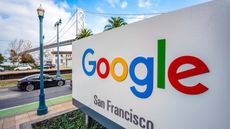The Dow Announces Its Biggest Shakeup Since 2013
The Dow Jones Industrial Average will replace three of its components, including its longest-serving member, at the end of August.


The Dow Jones Industrial Average will lose its longest-standing component as part of the blue-chip index's biggest shakeup in years.
S&P Dow Jones Indices, the global index provider that oversees the Dow Jones Industrial Average, announced late Monday that the venerable index will replace three of its components as of the market open on Monday, Aug. 31.
The move was made in part to "diversify the index by removing overlap between companies of similar scope and adding new types of businesses that better reflect the American economy."

Sign up for Kiplinger’s Free E-Newsletters
Profit and prosper with the best of expert advice on investing, taxes, retirement, personal finance and more - straight to your e-mail.
Profit and prosper with the best of expert advice - straight to your e-mail.
Joining the Dow will be:
- Customer relationship management specialist Salesforce.com (CRM)
- Biotech firm Amgen (AMGN)
- Industrial conglomerate Honeywell International (HON)
Leaving the DJIA will be:
- Big Pharma firm Pfizer (PFE), which joined the Dow in 2004
- Raytheon Technologies (RTX), one of the resulting companies from the Raytheon-United Technologies merger and subsequent spinoffs, which has been a part of the Dow in some form since 1939
- Integrated energy major Exxon Mobil (XOM), which joined the Dow Jones Industrial Average in 1928 and was the industrial average's longest-lasting component
The Dow has announced one-off changes over the past few years, such as Apple's (AAPL) replacement of AT&T (T) in 2015, and Walgreens Boots Alliance's (WBA) replacement of General Electric (GE) in 2018. But this is the largest multi-component swap since 2013, when Goldman Sachs (GS), Nike (NKE) and Visa (V) replaced Alcoa (AA), Bank of America (BAC) and Hewlett-Packard.
Apple's Part in the Dow's Reconstitution
Kiplinger previously pointed out that Apple's upcoming 4-for-1 stock split could have a negative effect on the Dow, and indeed, S&P Dow Jones Indices cited the split as its reason for taking action.
"The index changes were prompted by DJIA constituent Apple Inc.'s decision to split its stock 4:1, which will reduce the index's weight in the Global Industry Classification Standard (GICS) Information Technology sector," writes S&P Dow Jones Indices. "The announced changes help offset that reduction."
Remember: The Dow Jones Industrial Average is weighted by price, which means the higher the nominal share price, the more effect the stock has on the index's performance. This stands in contrast to the S&P 500 and many other major indices, which are weighted by market value – the more valuable the company, the higher its index weight.
Apple currently is the largest component of the Dow by virtue of its $500-plus share price, which is almost $200 per share more than the second-largest component, UnitedHealth Group (UNH). However, once AAPL shares start trading on a split-adjusted basis Aug. 31, that price will drop down to about $125 per share.
"Overall, the Apple split alone will reduce the weighting of information technology from 27.63%, down to 20.35%," says Howard Silverblatt, Senior Index Analyst for S&P Dow Jones Indices. "On an issue basis, Apple will decline to a 3.36% weighting from their pre-split 12.20% (a 72.48% reduction), as the reallocation will increase the weight of each of the other 29 issues by 10.07%."
In other words, despite being a nearly $2 trillion company, Apple will be relegated to the middle of the pack, as the 17th-largest holding, because of its share price. That forced S&P Dow Jones Indices to make some sort of change to better represent the American economy.
Tech Is King, Energy Is Sapped
Information technology has become the market's most dominant sector at more than 28% of the S&P 500. Apple's reduction in value prompted the Dow to add more weight to tech, which it did via Salesforce.com. CRM shares, at nearly $210 per share, will become the sixth-largest Dow component at roughly 5% of the industrial average's weight.
The Dow also addressed a need in health care, which is the second-largest sector at 14.2% of the S&P 500's weight. The DJIA added Amgen – the maker of Enbrel and Neulasta, which trades around $235 per share currently – in lieu of Pfizer, a massive pharmaceutical by market value, but the Dow's smallest component thanks to a roughly $39 share price.
Meanwhile, adding Honeywell (~$160 per share) gives the Dow a little more exposure to industrials than Raytheon Technology (~$62 per share).
But perhaps S&P Dow Jones Indices' most noteworthy move was cutting its exposure to the energy sector by booting Exxon Mobil, the Dow's longest-tenured component. That leaves Chevron (CVX) as the index's lone remaining energy holding.
Energy has dwindled in importance in recent years thanks to multiple commodity-price shocks and the resulting drops in its components' value. The sector, off 34% year-to-date as a sector, currently is the smallest slice of the S&P 500 pie at just 2.4%.
Still, while the Dow might paint a more accurate picture of the economy by dropping XOM, the index also loses a part of its rich history.
"Integrated oil and gas giant ExxonMobil has been a member of the Dow since Oct. 1, 1928, which is when the index was expanded from 20 components to 30 components," S&P Dow Jones Indices writes. "However, in the records of this historical event, Exxon's name is nowhere to be found: Back in 1928, the company was known as Standard Oil Co. of New Jersey. The company wasn't unveiled to the world as 'Exxon' until 1972, and it didn't become ExxonMobil until its megamerger with Mobil in 1999."
Get Kiplinger Today newsletter — free
Profit and prosper with the best of Kiplinger's advice on investing, taxes, retirement, personal finance and much more. Delivered daily. Enter your email in the box and click Sign Me Up.
Kyle Woodley is the Editor-in-Chief of WealthUp, a site dedicated to improving the personal finances and financial literacy of people of all ages. He also writes the weekly The Weekend Tea newsletter, which covers both news and analysis about spending, saving, investing, the economy and more.
Kyle was previously the Senior Investing Editor for Kiplinger.com, and the Managing Editor for InvestorPlace.com before that. His work has appeared in several outlets, including Yahoo! Finance, MSN Money, Barchart, The Globe & Mail and the Nasdaq. He also has appeared as a guest on Fox Business Network and Money Radio, among other shows and podcasts, and he has been quoted in several outlets, including MarketWatch, Vice and Univision. He is a proud graduate of The Ohio State University, where he earned a BA in journalism.
You can check out his thoughts on the markets (and more) at @KyleWoodley.
-
 Stock Market Today: Dow Climbs 288 Points After Amazon, Intel Earnings
Stock Market Today: Dow Climbs 288 Points After Amazon, Intel EarningsPost-earnings strength from Amazon and Intel helped cushion the blow of a disappointing October jobs report.
By David Dittman Published
-
 Nvidia Stock Is Joining the Dow. Is It Time to Buy?
Nvidia Stock Is Joining the Dow. Is It Time to Buy?Nvidia will replace Intel in the Dow Jones Industrial Average this Friday. What does it mean for the stock?
By Dan Burrows Published
-
 Stock Market Today: Stocks Slip Ahead of Election Day, Fed Decision
Stock Market Today: Stocks Slip Ahead of Election Day, Fed DecisionPost-earnings strength from Amazon and Intel helped cushion the blow of a disappointing October jobs report.
By David Dittman Published
-
 Stock Market Today: Dow Climbs 288 Points After Amazon, Intel Earnings
Stock Market Today: Dow Climbs 288 Points After Amazon, Intel EarningsPost-earnings strength from Amazon and Intel helped cushion the blow of a disappointing October jobs report.
By Karee Venema Published
-
 Jobs Growth Stalls Amid Hurricanes and Strikes: What the Experts Are Saying
Jobs Growth Stalls Amid Hurricanes and Strikes: What the Experts Are SayingJobs Report A dismal October payrolls print supports the case for a slow and steady pace of rate cuts.
By Dan Burrows Published
-
 Stock Market Today: Stocks Struggle After Meta, Microsoft Earnings
Stock Market Today: Stocks Struggle After Meta, Microsoft EarningsAll three major indexes closed lower on Thursday, making for a grim Halloween.
By David Dittman Published
-
 Stock Market Today: Stocks Slide as Solid GDP and Softer Inflation Vex Rate Cut Bets
Stock Market Today: Stocks Slide as Solid GDP and Softer Inflation Vex Rate Cut BetsEncouraging economic news damped hopes for accelerated rate cuts.
By Dan Burrows Published
-
 If You'd Put $1,000 Into Google Stock 20 Years Ago, Here's What You'd Have Today
If You'd Put $1,000 Into Google Stock 20 Years Ago, Here's What You'd Have TodayGoogle parent Alphabet has been a market-beating machine for ages.
By Dan Burrows Published
-
 Stock Market Today: Nasdaq Hits New High Ahead of Alphabet Earnings
Stock Market Today: Nasdaq Hits New High Ahead of Alphabet EarningsThe Google parent is one of several mega caps reporting earnings this week, with results due out after Tuesday's close.
By Karee Venema Published
-
 Why Pfizer Stock Is Lower After a Beat-and-Raise Quarter
Why Pfizer Stock Is Lower After a Beat-and-Raise QuarterPfizer stock is down Tuesday even after the drugmaker reported higher-than-expected Q3 earnings and raised its full-year outlook.
By Joey Solitro Published